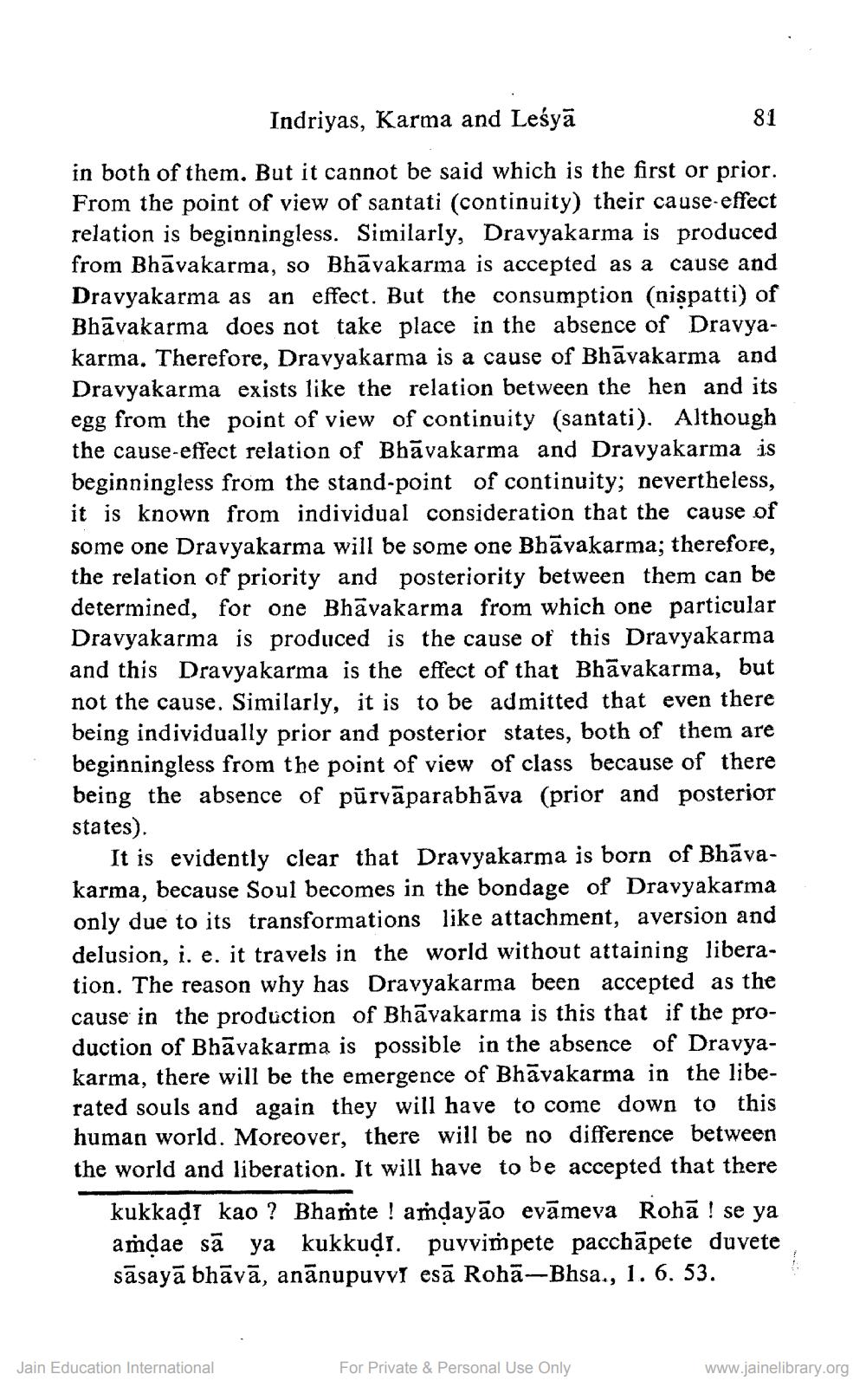________________
Indriyas, Karma and Lesya
in both of them. But it cannot be said which is the first or prior. From the point of view of santati (continuity) their cause-effect relation is beginningless. Similarly, Dravyakarma is produced from Bhāvakarma, so Bhāvakarma is accepted as a cause and Dravyakarma as an effect. But the consumption (nispatti) of Bhāvakarma does not take place in the absence of Dravyakarma. Therefore, Dravyakarma is a cause of Bhavakarma and Dravyakarma exists like the relation between the hen and its egg from the point of view of continuity (santati). Although the cause-effect relation of Bhāvakarma and Dravyakarma is beginningless from the stand-point of continuity; nevertheless, it is known from individual consideration that the cause of some one Dravyakarma will be some one Bhavakarma; therefore, the relation of priority and posteriority between them can be determined, for one Bhavakarma from which one particular Dravyakarma is produced is the cause of this Dravyakarma and this Dravyakarma is the effect of that Bhavakarma, but not the cause. Similarly, it is to be admitted that even there being individually prior and posterior states, both of them are beginningless from the point of view of class because of there being the absence of purvāparabhava (prior and posterior states).
81
It is evidently clear that Dravyakarma is born of Bhavakarma, because Soul becomes in the bondage of Dravyakarma only due to its transformations like attachment, aversion and delusion, i. e. it travels in the world without attaining liberation. The reason why has Dravyakarma been accepted as the cause in the production of Bhavakarma is this that if the production of Bhavakarma is possible in the absence of Dravyakarma, there will be the emergence of Bhavakarma in the liberated souls and again they will have to come down to this human world. Moreover, there will be no difference between the world and liberation. It will have to be accepted that there
kukkaḍī kao? Bhamte! amḍayão evameva Roha! se ya amḍae sa ya kukkuḍr. puvvimpete pacchapete duvete sāsaya bhāvā, ananupuvvi esa Roha-Bhsa., 1. 6. 53.
Jain Education International
For Private & Personal Use Only
www.jainelibrary.org




